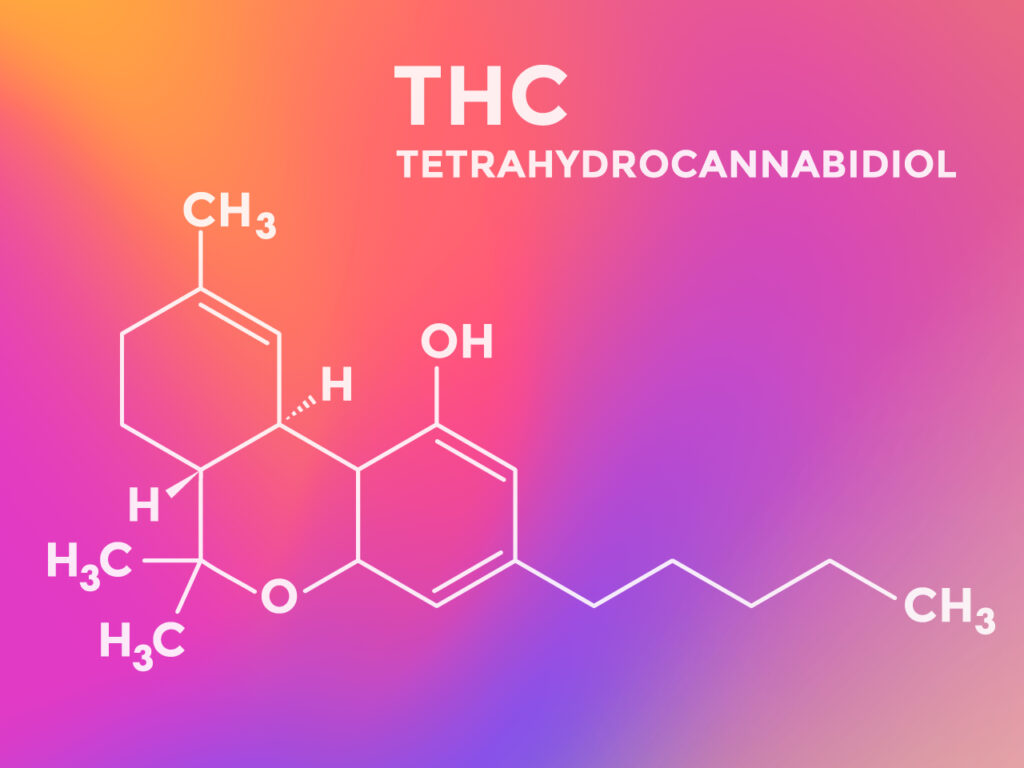
In some states and cities, it’s legal to use recreational marijuana and associated products—including THC-infused gummies, candies or brownies. In other locations, like in Indiana, they still ban these products.
These legal discrepancies have led to growing workplace confusion surrounding the consumption of THC, or tetrahydrocannabinol, marijuana’s primary psychoactive ingredient. Is it ever permissible for professional employees to use marijuana or THC recreationally? And if so, when?
Charles Mok, DO, an occupational medicine doctor at Franciscan WorkingWell, shared tips and considerations for employees and administrators working to establish practical and ethical workplace THC usage guidelines.
THC is a depressant that can slow people’s thought processes, decision-making abilities and reaction times. It can impair judgment and lead to confusion and agitation. Being under the influence of marijuana can also lead to reduced coordination, delusions or hallucinations and increased risk-taking behaviors.
“Marijuana can cause disorientation and an altered perception of time and space,” explained Dr. Mok.
These documented side effects of THC can impair a person’s ability to work effectively and professionally—and could even make certain job situations unsafe.
“In a workplace that requires employees to react quickly—such as in manufacturing—marijuana use becomes a major safety issue,” Mok said.
Marijuana intoxication can lead to an increased risk of injury or damage to equipment. According to the National Safety Council (NSC), marijuana use can also result in:
What’s more, the National Institute on Drug Abuse reports that employees who consume marijuana have higher rates of injuries and absences than employees who don’t.
No one would want a professional trucker or surgeon attempting to perform their jobs just after they had used marijuana. This professional expectation of sobriety applies to jobs of all types. To protect the safety of others, no worker should ever report to their workplace under the influence of THC.
Consumption of THC products on one’s personal time where usage is legal becomes a little trickier to navigate from an ethical perspective. That’s particularly true since many employers currently ban their employees from using marijuana, even in locations where it’s legal. In making this decision, many workplaces point to the fact that marijuana remains illegal under federal law.
The acute side effects of marijuana typically only about 6 hours. However, workers should understand that tests can detect traces of the THC compound in their bodies for days or even weeks after their last use.
So, even if an employee only uses marijuana on the weekends, it could still show up on their workplace-sponsored drug screen the following week or later.
According to some estimates, traces of THC can be found in urine samples for up to seven days after occasional use or up to six weeks following repeated use. THC can remain even longer in hair samples.
“Drug testing wasn’t meant to catch employees in the act,” explained Dr. Mok. “It was meant to serve as a deterrent.”
According to the NSC, employees are three times less likely to produce a positive result when they know their company conducts drug testing.
Some people equate recreational marijuana use to recreational alcohol use. “People may say they use alcohol outside of work but that they would never use it while on the clock,” said Dr. Mok.
The problem with this comparison is that reliable tests can measure acute alcohol intoxication. But similar tests for acute intoxication from marijuana do not exist. So, employers must take it seriously when marijuana shows up on a drug test—since it could imply that workplace impairment has occurred.
With all this in mind, workers should closely review their employers’ rules regarding marijuana use before legally using THC recreationally.
Finally, before opting to legally consume THC products away from work, employees should research the potential long-term health effects of marijuana use.
According to the National Institute on Drug Abuse, when compared with non-users, people who use marijuana daily reported:
As legislators and employers debate marijuana rules across the country, this issue will remain a hot-button topic. Marijuana policy decision-makers must consider questions of legality, personal choice, liability and ethical best practices.
Moving forward, staff and administrators will need to continue engaging in careful, intentional discussions about workplace safety expectations—and how potential THC use factors into those guidelines.
Whether you’re an employer or an employee, the Franciscan WorkingWell occupational medicine team is here to help. Our experts can offer support with a wide range of work-related medical issues, including the development of safety guidelines regarding marijuana and other substance use. Learn more about Franciscan WorkingWell’s occupational health programs.